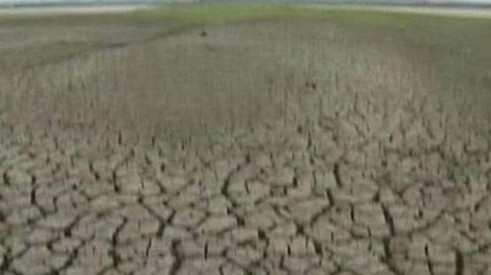
by Vishal Bhor
India's Soil Organic Carbon Content Fells From 1% to 0.3% in 70 Years
Soil Organic Carbon (SOC) is the primary component of soil organic matter, responsible for providing soil with its water-retention capacity, structure, and fertility. According to National Rainfed Area Authority (NRAA) CEO Ashok Dalwai, the SOC content in India has declined from 1 percent to 0.3 percent over the past 70 years, posing a significant concern for the agriculture sector. This decline in SOC adversely affects soil productivity as microorganisms crucial for providing nutrients to plants cannot survive.
Mr. Dalwai attributes the drastic fall in SOC content to intensive cultivation practices without proper composting of soil. He emphasizes the need for farmers to reduce their reliance on pesticides and fertilizers, advocating for the use of biofertilizers and compost to increase SOC levels in the soil.
Despite significant advancements in irrigation projects over the past seven decades, with 51 percent of land being irrigated, an equal portion of land under cultivation remains rainfed. To address water scarcity issues in rainfed areas, technologically-advanced micro-irrigation projects are being introduced by the government, aiming to conserve 30 to 40 percent of water.
The disparity in crop production between irrigated and rainfed areas is evident, with average crop production in irrigated land being three tonnes per acre compared to only 1.1 tonnes per acre in rainfed areas. Mr. Dalwai highlights the success of the pulses mission initiated by the Centre, which has significantly increased pulse production from 16.7 million tonnes in 2016-17 to 25 million tonnes in 2021-22. Similarly, oilseed production has risen to 32 million tonnes this year from 24 million tonnes in 2016-17.
Furthermore, the government is exploring the possibility of introducing sugar beet as a substitute for sugarcane to mitigate the dependency of sugar factories on sugarcane, which is available for only six months. This move aims to diversify sugar production and enhance agricultural sustainability.
BS Dwivedi, Director ICAR- NBSS&LUP, mentioned ongoing efforts in preparing land resource inventory (LRI) and alternate Land Use Plans (LUP) for the Vidarbha region in eastern Maharashtra.
(Note: The headline is not edited by NDTV staff and is published from a syndicated feed.)
_1715230137.png)
